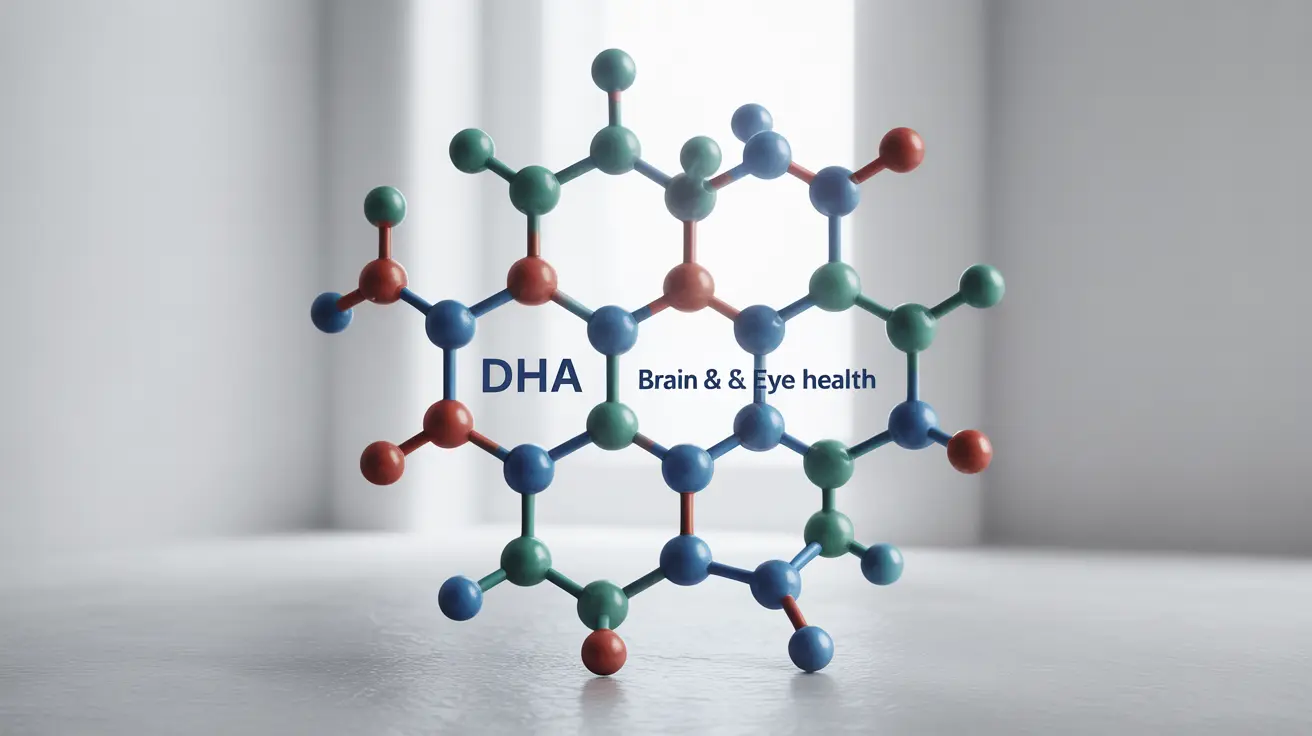DHA (docosahexaenoic acid) is a vital omega-3 fatty acid that plays a crucial role in human health, particularly in brain function and visual development. As one of the most abundant fatty acids in the brain, DHA is essential throughout life, from fetal development to aging adults.
Understanding what DHA is and its importance can help you make informed decisions about your diet and supplementation needs. Let's explore the benefits, sources, and recommended intake of this remarkable nutrient.
The Science Behind DHA
DHA is a long-chain omega-3 fatty acid that forms a critical component of cell membranes, particularly in the brain, retina, and heart. Its unique molecular structure allows it to maintain cellular fluidity and support optimal nerve cell communication.
This essential fatty acid cannot be produced efficiently by the body and must be obtained through diet or supplementation. The limited conversion rate of other omega-3s into DHA makes direct consumption particularly important.
Brain Development and Cognitive Function
DHA's role in brain health begins before birth and continues throughout life. During pregnancy, it supports fetal brain development and helps form the neural connections necessary for learning and memory. In adults, adequate DHA levels are associated with:
- Better memory retention
- Improved focus and concentration
- Enhanced learning ability
- Reduced risk of age-related cognitive decline
Vision and Eye Health Benefits
The retina contains one of the highest concentrations of DHA in the body. This omega-3 fatty acid supports:
- Sharp visual acuity
- Proper retinal development in infants
- Protection against age-related vision problems
- Maintenance of healthy eye function
Dietary Sources of DHA
Marine Sources
The richest natural sources of DHA include:
- Fatty fish (salmon, mackerel, sardines)
- Fish oil
- Algal oil
- Sea fish eggs (roe)
Plant-Based Sources
Vegetarian and vegan options include:
- Algae-based supplements
- Fortified foods
- Seaweed products
Supplementation Guidelines
When considering DHA supplementation, several factors determine the appropriate dosage:
- Life stage (pregnancy, infancy, adulthood)
- Current diet composition
- Health conditions
- Individual health goals
Frequently Asked Questions
What is DHA and why is it important for brain and eye health?
DHA is an omega-3 fatty acid crucial for brain and eye health because it's a major structural component of these tissues. It supports neural communication, helps maintain cognitive function, and ensures proper visual development and maintenance throughout life.
How much DHA should pregnant women and infants consume for optimal development?
Pregnant women should aim for 200-300mg of DHA daily, while breastfeeding mothers need 200-400mg per day. Infants require 100mg daily through breast milk or formula. Always consult healthcare providers for personalized recommendations.
What are the best dietary sources of DHA for vegetarians and non-vegetarians?
Non-vegetarians can obtain DHA from fatty fish like salmon and sardines. Vegetarians and vegans can rely on algae-based supplements, fortified foods, and seaweed products as alternative sources.
Can DHA supplements help reduce the risk of heart disease and cognitive decline?
Research suggests that DHA supplementation may help reduce cardiovascular risk factors and support cognitive function as we age. Regular consumption may help maintain heart health and protect against age-related mental decline.
What are the differences between DHA and other omega-3 fatty acids like EPA and ALA?
DHA is a long-chain omega-3 fatty acid primarily found in marine sources, while EPA is another long-chain omega-3 often found alongside DHA. ALA is a shorter-chain omega-3 found in plant sources that must be converted to DHA and EPA in the body, though this conversion is typically inefficient.




